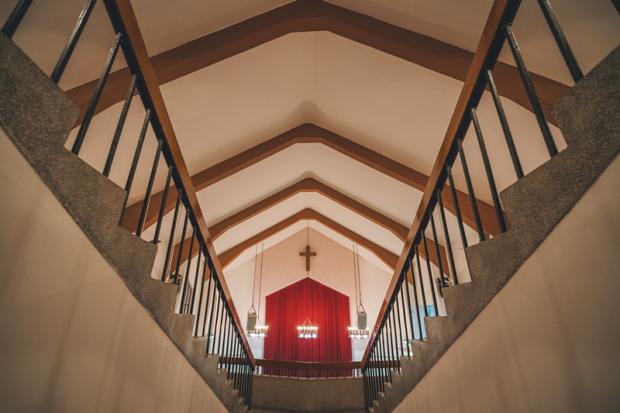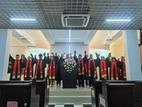Editor's note: This is a main excerpt from a reflection from Rev. Huang from a church in Changsha, China's central Hunan Province, during the coronavirus outbreak.
People panic at the sudden catastrophe. In a confusing hurry, people grabbed face masks, food, alcohol, moxa sticks, sanitizers, and the Chinese medicine "Shuanghuanglian" (said to be effective in "inhibiting' the Corona Virus Disease [COVID-19])... Anything claimed by experts to be "useful" is run out of stock by the public. People freak out at the mention of "Wuhan".
However, what are the church and its leaders doing? Are church pastors busy with discussions on how to gather onsite or online?
Some pastors still enjoy "eating, drinking, and being merry" during the atmosphere of the Chinese New Year, while some disappear.
WeChat moments are filled with sermons, comments, and opinions on a plague. Various kinds of voices and talents are busy outdoing each other.
For a while, social media was flooded with appeals for prayers. Many prayer meetings, groups, chains, and cities emerged in order to combat the attack of the devil for the glory of God. The mainstream focused on confession of sins and repentance, that we should mourn and fast for China's sins with a contrite heart. Those were good and godly, but some sounded gleeful and judgmental.
In fact, who are the ones who need confessions and repentance the most? Personally speaking, it's us the pastors.
Pastors should first confess their sins and repent.
In the Old Testament, the prophets express the judgment and word from God, calling on repentance. They usually start with the then priests and rulers. In the New Testament, Jesus teaches us that the church should first be holy. Jesus claims that we should not feel more holy than those who died when the tower in Siloam fell down. Unless we repent, we too will all perish. The Bible reveals that a plague is a servant of God which he uses to discipline and punish people. The radical reason is man's sin. A plague keeps us alert and heralds the second coming of Christ.
During the plague (COVID-19), many pastors and Christians see themselves as priests with the identity of Aaron. This is not bad, but the problem lies in who are as priests. A plague means a discipline and reminder to Christians. We pastors should think about how to reflect during the epidemic rather than merely pray for the world.
Most of the popular videos, links and audio among Christian circles on WeChat convey the same message - everything is somebody else's fault.
Pastors are the thermometer of the contemporary religious landscape, the checking machine of consciousness, the religious pilot of the era, the moral example, and the prophet of the age.
You can imagine how dark this era is if they don't respond or respond falsely. You can image what will happen if they fail to see themselves, see the work of God, and see the symptoms of the world and still attempt to guide the blind...
Some might argue that pastors are free from sins because they are considered the most toilsome people who receive the least attention and the worst living conditions. Is that true?
Let's start from pastors of big churches.
Big churches refer to the churches which have large congregations, buildings, and abundant funds.
I feel envious yet disgustful of big church pastors. They are accustomed to high positions, applauses, flowers, and being "stars". They are more likely to solve anything with money which buys the most excellent pastors, best location for chapels, and best equipment. Money makes people feel good. However, how many big churches are built at the expense of small churches? (A big fish eats a small fish.)
The pastors of large congregations should be good at peddling and speaking big "godly" words. In conferences, those big church pastors have a bigger say in every matter, seeming to be authoritative experts. But what real "godly" things do they do?
The "church building construction" campaign in previous years spent plentiful money and material resources on useless vanity projects. The evangelism projects are still to be carried out, yet successive slogans have been getting louder than their preceding ones; for example, the "holy land" storms during the past few years, marked by brethren rushing to visit Israel. There is never a dull moment in the Bible study, lessons, and campaigns introduced by large churches, but it's unfortunate to imagine the real influence.
That is just the tip of the iceberg. Isn't that sinful? Shouldn't we church experts repent and confess our sins?
Then comes to small church pastors.
A small church is characterized by a small congregation, less money, and no building.
There was previously no distinction between a big church and a small church. The current distinctions mostly result from random comparisons and arbitrary definitions.
The sin of a small church pastor is not necessarily lighter than that of a large church pastor.
I'm a pastor from a small church. I admit that my careless talking, use of big words and creating something from nothing, can unintentionally hurt others.
Apart from limited gifts and talents, there are many other reasons why a church remains small. A small church pastor barely maintains the church services due to limited funds and personnel. There moments when I wish to flee from my church. The difficulties of a small church pastor are accompanied by the pastor's complaints of "impoverishment", bitterness, and sometimes curses. Such pastors are more likely to be mean and not generous, only wanting rather than being grateful. Narcissism tends to grow in the heart of small church pastors who hold that God does not care about the church size.
Consequently, they slack off and do what they want without supervisors. The financial management is not transparent. If they only do what they want, how could a church become large? There is little study time for small church pastors who make no attempt to make progress. I often abandon myself to vice and refuse to study and grow. Besides the restriction of my pocket, the more important thing is the foolishness of my brain...
In addition to the above...
between the churches...
The communion of saints only happens inside one church or denomination. Large churches get in vicious competitions and attack each other. Churches in the same city engage in "stealing" members from each other.
Small churches claim that big churches cover up the sky and the latter judge the former as being "dirty, disorderly, and bad". Moreover, many sins stem from evangelism, many pastors are bribed to engage in falsehood and cheating. Several are involved in sinful and reckless actions in the name of "devoutness". With moral corruption, many pastors occupy high positions with a lack of sentiment in faith. Too many sins are hidden behind the pulpit...
The plague ended the yellow vests movement in France, alleviated the tension in the Middle East, and terminated the national carnival. The epidemic unites the Chinese people and makes us realize the value of humanity. It puts an end to many things and will come to an end, but the lessons it brought started to be learned in the church.
Because the plague points at God and leads people back; it leads to eternity and reminds us that the Lord of judgment will soon come. The church and pastors should be alert and of sober mind to remain holy and stay away from sins.
Above all, we the pastors should repent, confess our sins and long for eternity, so as to be effective in carrying out the Great Commission, instead of wasting time and engaging in misconduct.
- Translated by Karen Luo












